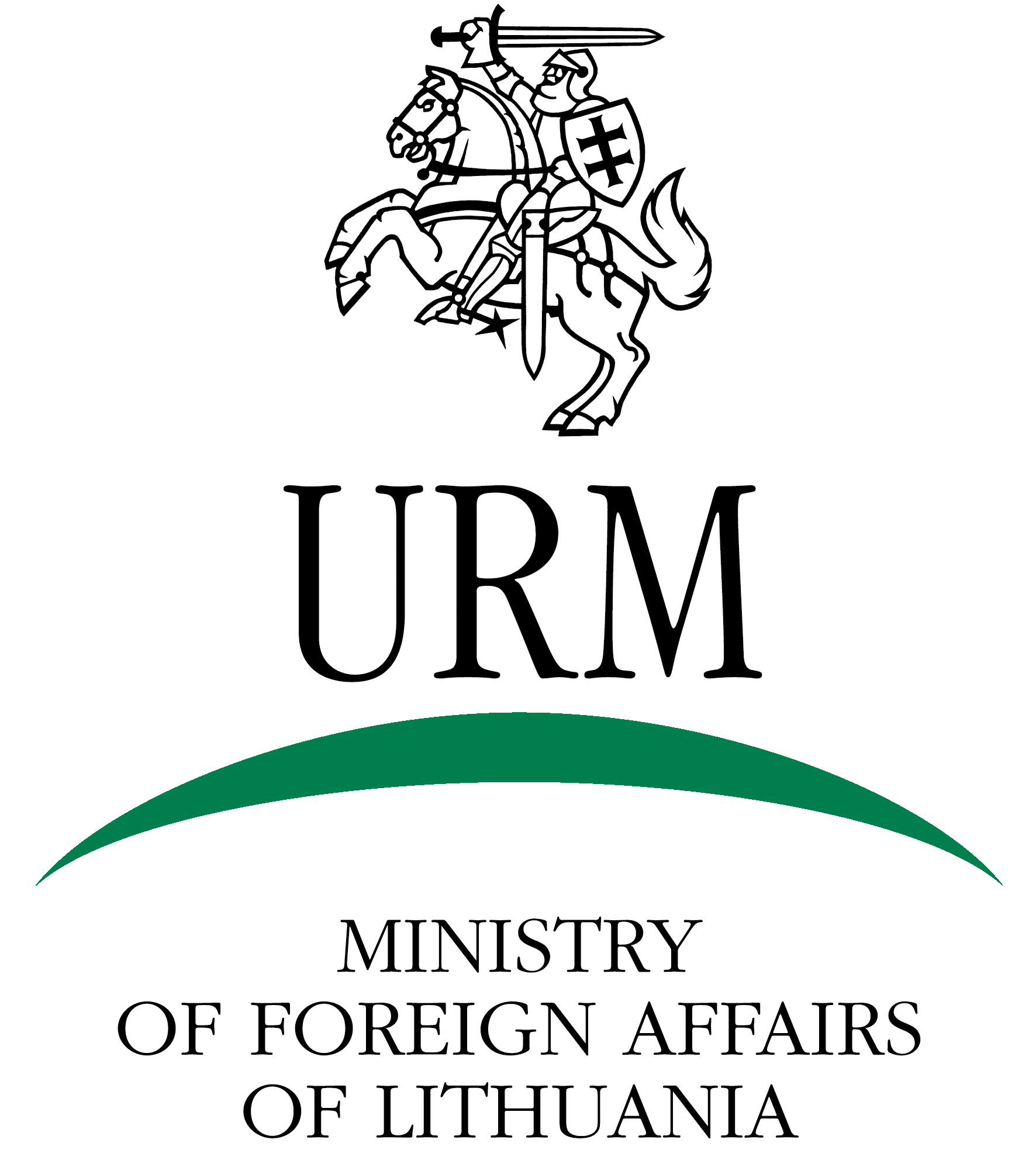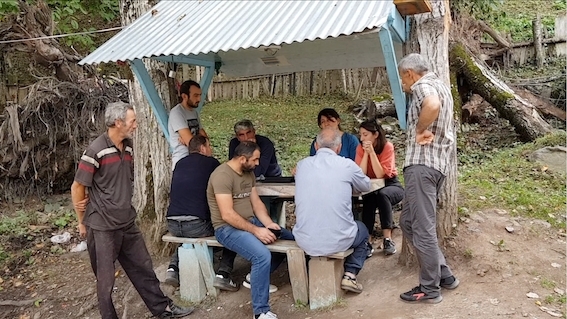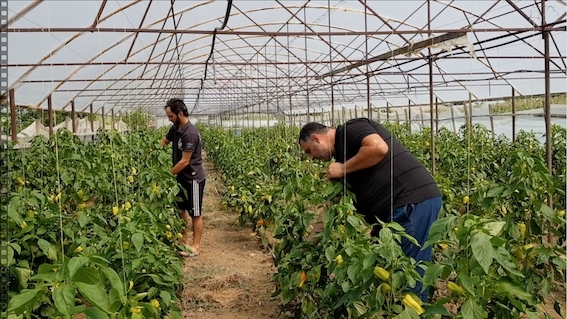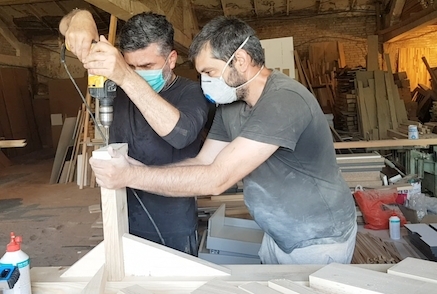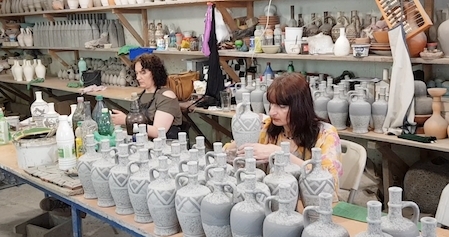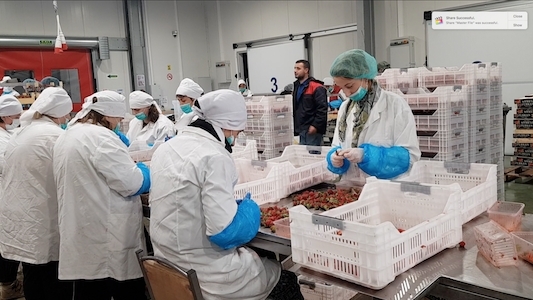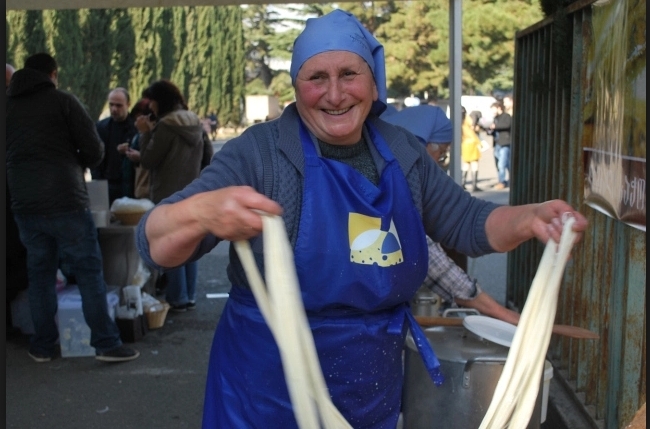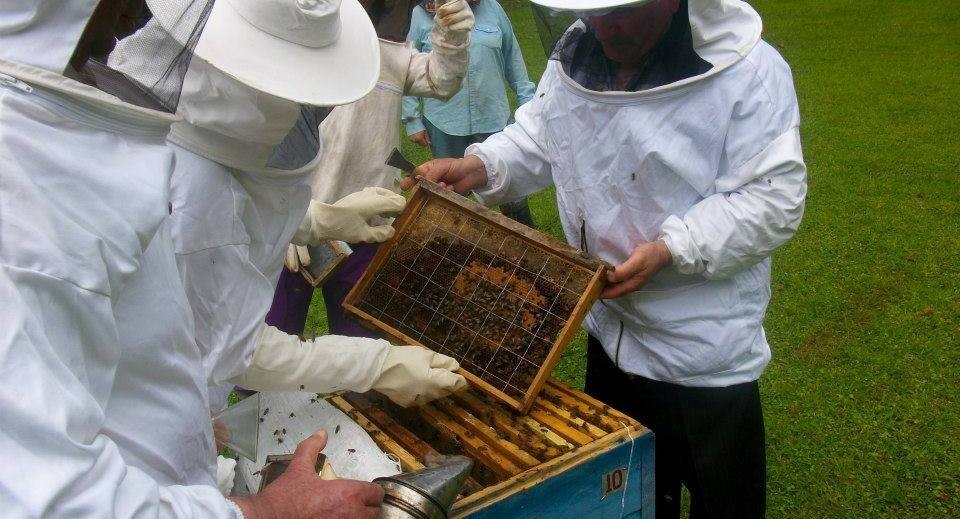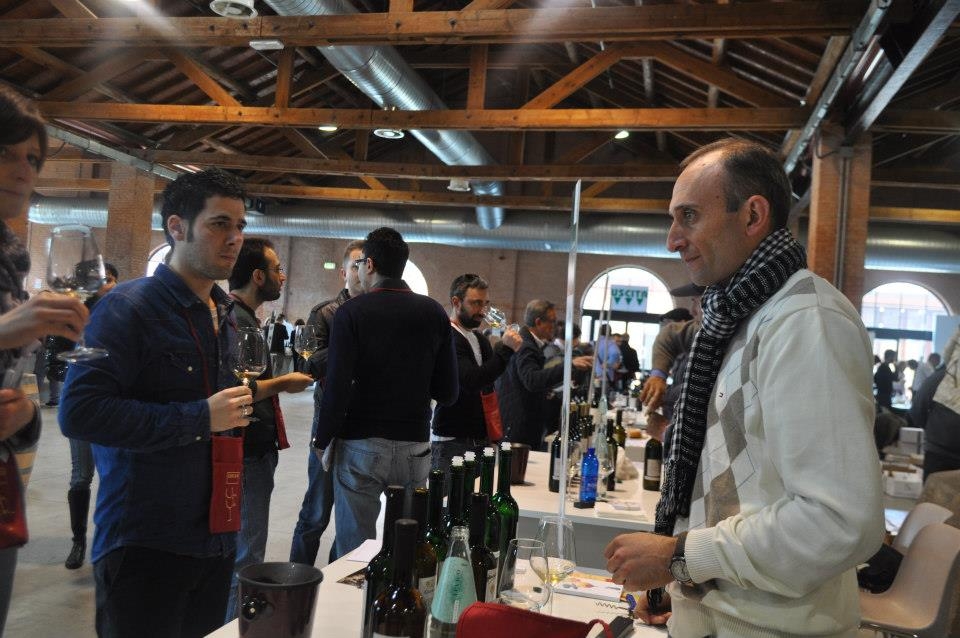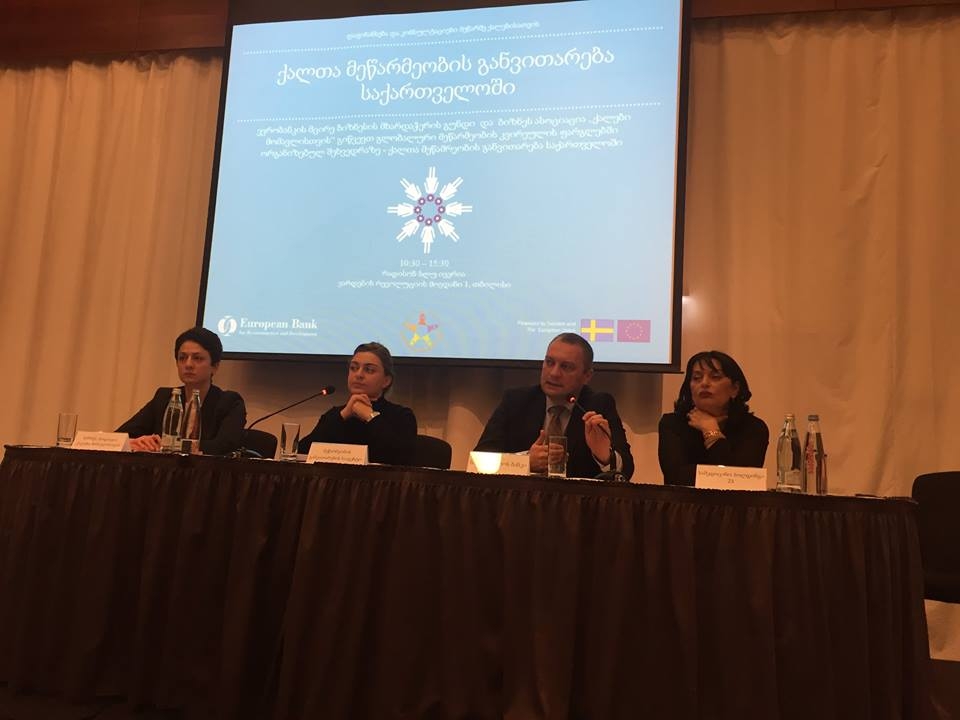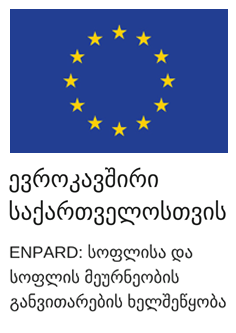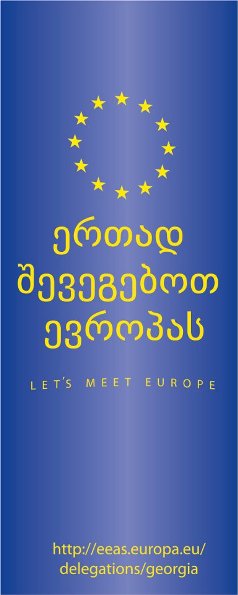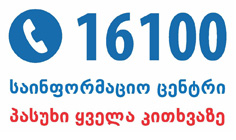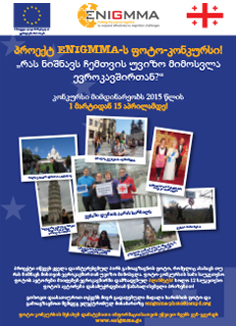Business clusters are evolving in Georgia

Business cluster do not have long history in Georgia. The first cluster was established just 2.5 years ago. This was a cluster of Georgian furniture, which was created in Avchala based on the existing geographical agglomeration of furniture manufacturers, the "Craftsmen's City", and today it unites about 40 small and medium enterprises. Also, in the summer of 2017, the Georgian Film Cluster was created, which today unites more than 40 professionals in the field of film production. Later, the Georgian ICT (Information and Communication Technologies) Cluster was established which unites 11 companies working in the field of information and communication, some of which are in a common space, "Mion".
The main purposes of private companies to join the business clusters are to increase competitiveness and facilitate export opportunities. Business cluster formation in Georgia has been implemented through the fund of EU and German government and technical support by GIZ (The German Society for International Cooperation).
Tea Kenchadze, GIZ (German Society for International Cooperation) Communication Expert, talked to us about the activities of existing clusters in Georgia:
- The pilot project of the business cluster was implemented by GIZ within the framework of the private sector development program in 2014-2017 and as a result, Qvevri wine cluster was created. In 2016-2019, within the framework of the EU-funded project "Small and Medium Entrepreneurship and DCFTA in Georgia", GIZ was given the opportunity to implement cluster development initiatives in five other sectors - furniture production/interior design, film production, apparel production, information- Communication technologies and honey production/beekeeping. These sectors were selected both, in terms of cluster development prospects and high export potential.
Cluster development initiatives aroused great interest among furniture production, film production and ICT companies. As a result of intensive cooperation with those companies and with the involvement of GIZ international experts, three clusters have already been created and officially registered in Georgia. Those clusters are: Georgian Furniture Cluster, Georgian Film Cluster and Georgian ICT cluster.
Prerequisites for creating a business cluster are trust between potential member companies and the existence of a unified vision for the development of the sector. It is noteworthy that in many cases, the members of the cluster already knew each other, however, they did not have the experience of cooperation. We have assisted them in developing a unified strategy and action plan, as well as establishing international contacts. Several visits have been held abroad. For example, members of the ICT cluster visited the clusters operating in Latvia and Estonia to share their experiences.
Cluster member companies maintain competition and at the same time a new opportunity arise, such as implementation of innovative approaches, which may not be available for a single company. As an example, two members of furniture cluster with joint resources were able to successfully participate in the state procurement and implemented a joint project. Separately, they could not afford to carry out such a big order.
Within the framework of the furniture cluster, for the first time Georgian designers were contacted by furniture manufacturers. This type of connection did not exist before, which was complaining issue for both sides. Furniture manufacturers claimed that the designed projects often did not consider the specifications of the production processes and orders were too difficult to accomplish. Designers, for their part, had a hard time finding reliable manufacturers who would put their ideas into reality. In the framework of cluster development, manufacturers and interior designers were given the opportunity to establish close professional ties with each other, including by promoting their joint participation in international industrial exhibitions and fairs. The designers have visited the cluster member companies at their places, got acquainted with the production processes, and this process has already led to concrete results in the implementation of joint projects.
- How was the Georgian film cluster formed, how did the process of creating this cluster go?
- Cluster development initiative was launched based on a study of the sector needs and considering the priorities of the government's leading partners - the Ministry of Economy and Sustainable Development and the agency "Produce in Georgia". At the initial stage, we considered only post-production area for cluster development, but at the later stage, to fully cover the film production sector became feasible.
The development film production might be a source of huge economic development and that is why film cluster’s one of n the objectives is to develop the industry and to promote Georgia as the most attractive location for film production on the international level. Member of film cluster are companies and individual film professionals as well, which are united around the unified vision of development of film industry.
It is important for the film cluster to develop the professional skills of the employees in the sector. However, the training of professional staff is a topical issue not only for the film cluster, but also for all clusters, and indicates the problem of lack of professionals in these sectors. Another important direction is the dialogue between cluster members and the government about important issues of the sector. Lobbying common interests is especially important for members of the film cluster - they consider the cluster as a platform through which the relevant agencies will introduce a common position on current issues related to the development of the sector. By doing this they will contribute to the development of relevant policies or legislation.
Participation in festivals and film-markets is another important direction. It is crucial for cluster members to have an opportunity to visit international film festivals and markets. With the support of our project, the members of the cluster were given several such opportunities, which led to concrete results - several members of the cluster signed contracts for joint production with foreign companies. “Magnet Films” is one of the companies which signed an agreement on co-production with European partners during a visit to Cannes Film Market. The film "Negative Numbers" has just been released.
- As we know, geographically close location is one of the important factors for cluster formation…
- Yes, In general, one of the characteristic of clusters is the geographical proximity of its member companies or organizations. There was already a "Craftsmen's City" in Avchala, where more than 100 entrepreneurs or enterprises were operated. Part of these enterprises joined the cluster. However, today the cluster has already gone beyond the "craftsman's city" and new members have been added, for example, the company "Madera Georgia" located in Kutaisi.
- Could you name the most successful cluster today?
The success indicator is different for three clusters. It is more difficult to measure success in filmmaking industry because we cannot see results directly. The contract may generate income only after 5-6 years. In the field of furniture, concrete results have already appeared - in the form of joint projects or orders.
- Business entities have already created various types of unions. For example, an association, a cooperative. What is the difference between an association and a cluster, for example?
- It is difficult to find a clear difference. The cluster includes elements common for associations or cooperatives. The association is often the policy-maker and the lobbyist in relations with the government. The cluster also characterizes with this feature, but cooperative does not. The latter is more of a commercial oriented union. The cluster also has a commercial characteristic. The cluster also has a governing body - the board and the manager, although it is less formalized and flexible.
- Does the government consider any type of benefits for clusters?
- Of course, during meetings with the government, cluster members can raise such kind of issues. Clusters are registered as a non-profit (non-commercial) legal entities. One of the goals of their activities is to express the interests of a sector in relations with the government. For example, the film cluster focuses on the problem related to VAT for services provided for foreign investors. Cluster members have discussed this issue at various meetings, reconciled positions, and began a dialogue with various government entities. In case of furniture cluster, there is a problem of professional skill in this sector and the cluster discusses opportunities for cooperation with the public sector in promoting vocational education.
As a rule, companies operating in one sector find it difficult to sit around the table and discuss common needs. They consider each other only from the competition angle. The process of cluster formation has shown us that they can agree on a unified vision for sector development. For example, the members of the film cluster agreed on a code of conduct that they would follow in their work.
- Which other potential areas can be formed into a cluster?
- As part of the previous project, we have started working with apparel manufacturers. We have helped them establish international standards of social compliance (amfori BSCI). As a result, “MPT Georgia” has successfully passed the international audit and received the highest rating, which will help attract additional international contracts. GIZ will continue working on cluster formation in this sector as part of a new project "Cluster for Development", which is also funded by the European Union and the German government.
Within the new project, it is planned to create clusters in the tourism and construction materials production sector as well. About the latter, the emphasis will be on the development of the local production. There are enough resources for such development and these companies need to be promoted. At this stage, we work on finding the companies wishing to join the cluster. In case of tourism, the project will be implemented in Imereti and Kakheti regions. The project aims at creating three thematic clusters: local wine and gastronomy tourism cluster, authentic hotel cluster and cultural heritage cluster, which will unite entrepreneurs and organizations providing relevant products and services. Specific activities include introducing international standards, development of opportunities in marketing and online presentation, etc.
Author: Nona Kvlividze
The article is prepared with the financial support of the Ministry of Foreign Affairs of Lithuania and "Development Cooperation and Democracy Promotion Programme."
